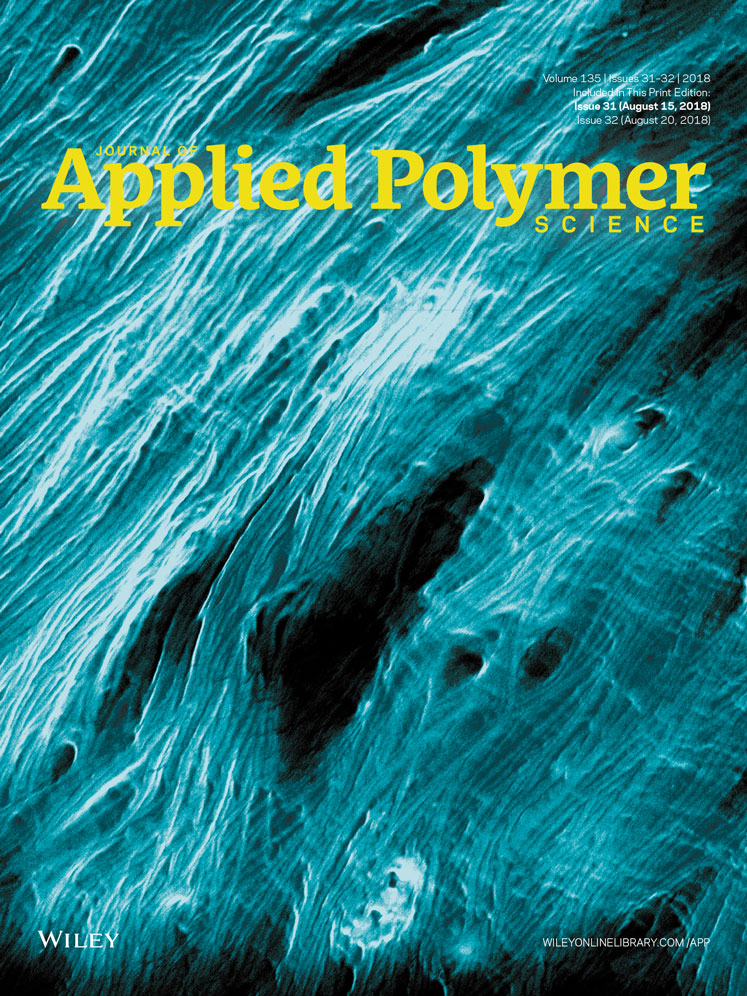Influence of thermal and morphological characteristics on mechanical responses of polypropylene/γ-irradiated elastomer blends
ABSTRACT
The approach of this paper is to examine the mechanical responses of polypropylene (PP)/γ-irradiated ethylene acrylic elastomer blends and subsequently compare them with the PP/unirradiated ethylene acrylic elastomer blends. Thorough correlations were drawn between the mechanical characteristics of blends and their morphological, thermal, thermomechanical, and fractured surface morphological aspects. The idea of carrying out γ-irradiation was to introduce crosslinking points in the elastomer phase. For better understanding, correlations between the impact test results and the fractured surface morphologies were analyzed. The limited tensile properties of PP/γ-irradiated elastomer blends were attributed not only to the poor interfacial adhesion, obtained by fitting with several theoretical mechanical models, but also to the substantially higher elastomer particle size in the blends than in the PP/unirradiated elastomer blends. The higher loss modulus and tan δ values for PP/unirradiated elastomer blends along with the attainment of much smaller particles of elastomers were responsible for the phenomenal increase in impact properties, which was actually attributed to the formation of crazes inside the dispersed phase during applied impact stress. © 2018 Wiley Periodicals, Inc. J. Appl. Polym. Sci. 2018, 135, 46597.




